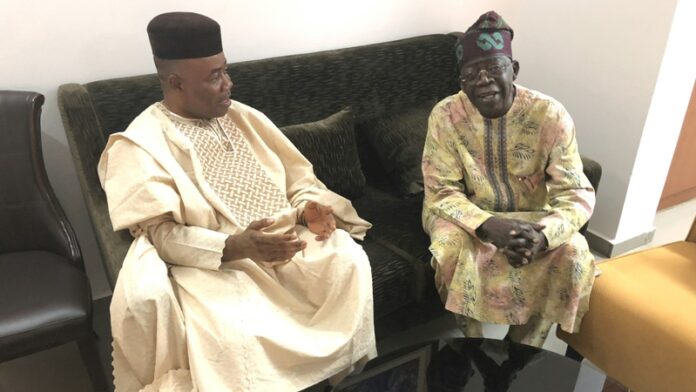Rotimi Fasan
After nearly two weeks of political controversy, grandstanding and mudslinging, it’s beginning to emerge, I believe, that the reintroduction of the national anthem that ushered Nigeria into the comity of independent countries in 1960 was after all not entirely the brain child of either one-man or the complacent national legislature that appears to be at his beck and call.
A composition of a British national, Lillian Jean Williams, the 1960 anthem was a colonial bequest that was jettisoned on the eve of Nigeria’s return to civil rule in 1978,partly for the same reasons it has apparently been rehabilitated- a yearning for national pride and the rejection of the sense of postcolonial thraldom that the continued existence of the national anthem represented.
The military administration under which the national anthem was laid to rest harboured a good measure of anti-colonial sentiments that had seen it supporting and championing the cause of liberation organisations across Africa, the Middle East and other parts of the neo-colonial world. That was the Murtala Muhammed/Olusegun Obasanjo regime that earned for Nigeria the status of “a frontline state”, one of five other countries fighting the white minority apartheid regime that controlled most of the southern parts of Africa. The decolonial and pan-African activism of the regime led to Murtala Muhammed’s “Africa has come of Age” speech of January 1976, culminating with his assassination less than two months after on February 13, 1976.
That same government, under Obasanjo, went on to nationalise both the British Petroleum and Barclays Bank and renamed them, respectively, as African Petroleum in July 1979 and Union Bank in April 1978. In general terms, it rejected the big brother attitude of the British government under James Callaghan and Margaret Thatcher. To say a country that had shown this degree of national pride and asserted the non-aligned status of Nigeria while actively engaging organisations such as the African National Congress (ANC), South West Africa People’s Organisation (SWAPO), The Peoples Movement for the Liberation of Angola (MPLA) and the Palestinian Liberation Organisation (PLO) etc, would go back to its vomit in the manner it has done under the current All Progressives Congress-led administration, is both a huge irony and national let-down. It’s no less a symbolic capitulation to the forces of neo-colonialism.
But having said that, this development should be for us a matter for national reflection given what it says about the Nigerian people, their elected representatives in particular and Nigerian politicians in general. There is increasingly a huge disconnect, an intellectual chasm of a political kind, between the people and their elected leaders to the extent that the people have developed an overblown sense of disdain for their leaders who in turn see them as manipulative tools of partisan politicians who cannot be trusted to make meaningful, unbiased intervention on issues of national importance.
Under the manipulative influence of disaffected politicians, supporters of our different political parties, for or against the ruling government, have lost the capacity to keep their criticism of government actions and initiatives clean and free from personal excoriation and attacks on the officials. A lot of what passes for or should be dispassionate criticisms of official government action have today degenerated into despicable attacks on the person of the people concerned and those perceived as supporting them. This has apparently made it difficult for such officials to take criticisms that draw no distinction between their person and office seriously.
When everything becomes grist for the criticism mill of opposition elements and their supporters, including issues such as the removal of oil subsidy that they had all committed to in the run-up to the 2023 elections, it may be difficult for the targets of the criticisms to view them as anything other than the typical attacks that politicians like to lob at one another even when they would not do things differently, if not worse, were they given the same opportunity to make important decisions. In such circumstances, the leaders under fire could go ahead to take decisions that could be manifestly injurious to the national interest just to spite their critics.
While such action would be too short-sighted, irresponsible and amounts ultimately to cutting one’s nose to spite one’s face, the wrong decision would have been taken and the consequences would be on everybody. That would seem to be the case with the decision of the Tinubu-led government to not only revert to the country’s old national anthem but rush through the process that led to its adoption. To be clear, my point is not that the decision was a spiteful take at the opposition. There are persons genuinely convinced that the old national anthem was a far better mobilisation and reorientation call to Nigerians than the home-made one that lasted all of forty-six years. The issue could, perhaps, have been reconsidered under a different atmosphere.
It’s reasonable to wonder that of all things that the country could focus on at the moment,of all the economic, social and security issues the country is grappling with in the enervating first twelve months of this administration, it seems gross and odd that changing the national anthem could be a major concern of the government. But as the President, Bola Tinubu, has told us all, changing the national anthem is of priority to him and we need not downplay the seriousness of that point. It was a matter of vigorous debate at the National Conference of 2014 after Chief Mike Ozekhome moved a motion to that effect. The motion was successful and the decision fromit was adopted. Tinubu would thus appear,as with the removal of oil subsidy, to have executed a decision that preceded his coming into office even if he was also a known supporter of the anthem change.
A national anthem is a clarion call of sorts. It is a call to duty and an assertion of a people’s sense of pride. It is a reminder of a people’s civic obligation, of the social contract that binds citizens to their country. It is symbolic of what a people stands for, their sense of identity, hope and aspirations for the future. It could be a mythical back cloth that animates the people’s vision and galvanises them into action. It is both aspirational and celebratory and not necessarily a lightning rod, as some have been persuaded to believe in this case, that it was an attempt to divert attention from more pressing issues.
Nigerians do need attitudinal change, especially in the last few years of ethnic and religious division, hate-driven rhetoric and blatant, even triumphant display of disloyalty to the country and the symbols of state power. While that point might have been incompetently articulated, this should be the big takeaway of the anthem change.





























































